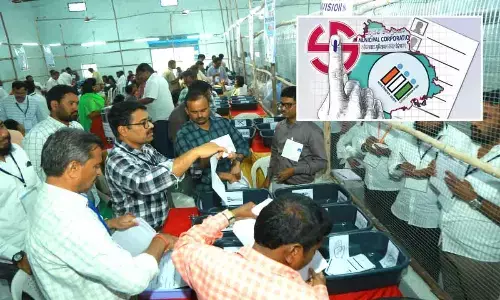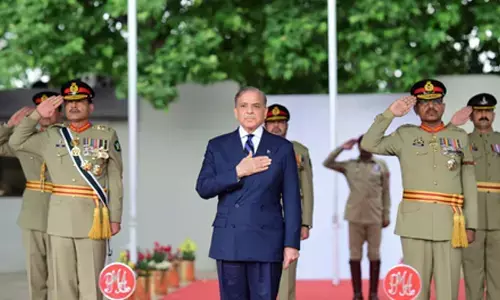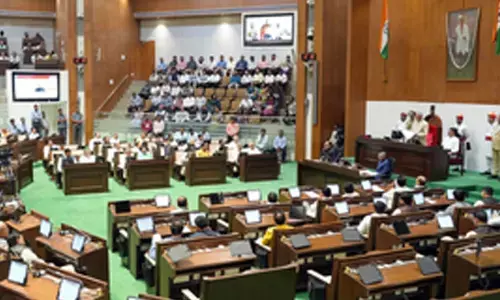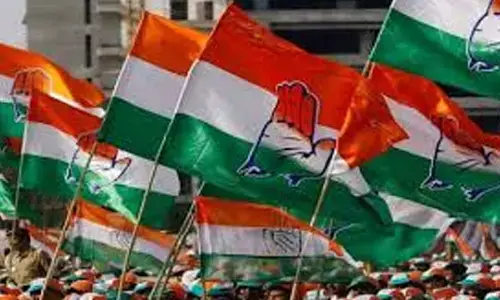Cotton farmers caught in crossfire
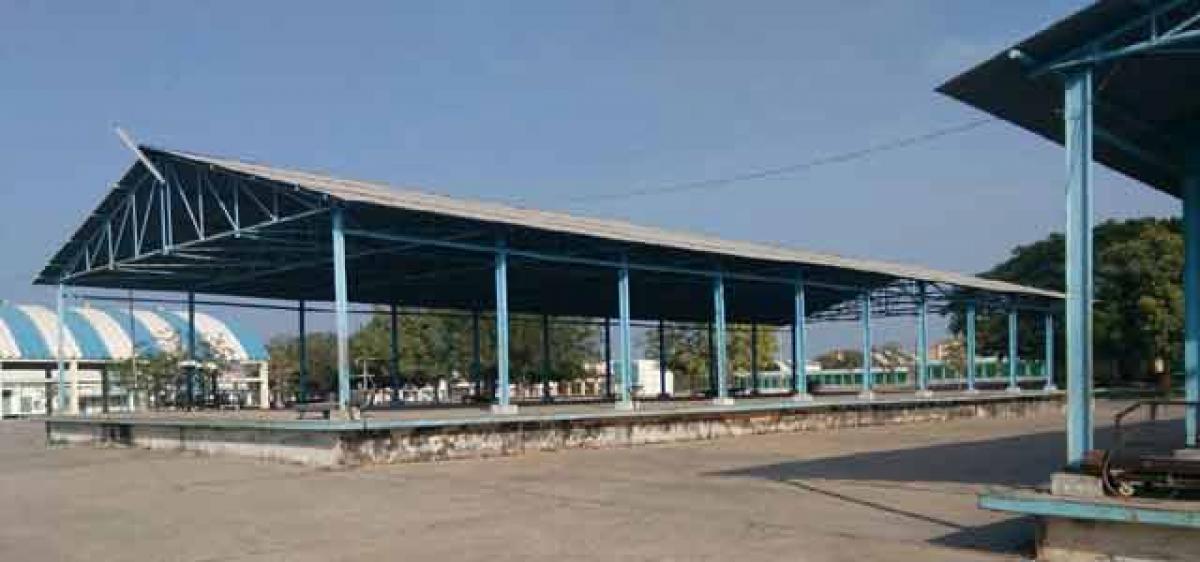
The issue of ‘mamool’ (forcible money collection) has once again raised its ugly head in the cotton market here, the second biggest in Telangana after the one located in Yenamamula, leading to its closure.
Jammikunta Cotton Market, the second biggest in Telangana, has been closed again thanks to the tussle between hamalis and millers
Jammikunta: The issue of ‘mamool’ (forcible money collection) has once again raised its ugly head in the cotton market here, the second biggest in Telangana after the one located in Yenamamula, leading to its closure. It used to sell till the other day the highest quantity of cotton in the country itself. The trouble arose with the buyers insisting that they would collect the charges of taking cotton stocks to mills from farmers.
Hamalis in the market insist that this decision goes against the regulations of the market. This row has forced officials to announce indefinite closure of the market. When farmers were happy with sales in the market after the MSP touched over Rs 5,000 a tonne, the issue of collection of mamool by the hamalis surfaced, crushing the farmers’ interests between hamalis and millers (buyers).
This dispute forced Market Chairman Pingali Ramesh to look on helplessly, without being able to bring about a rapprochement between the two warring sides. He announced the closure of the market on December 26, resulting in a crash of price, after it remained closed for four days.
Taking advantage of the situation, brokers waiting outside the market announced that they would purchase cotton at Rs 4,300. The hapless farmers were forced to get rid of their stocks at a lesser price, because of the dispute between hamalis and millers. However, the market reopened after a gap of six days, pushing the rate to a new high, much to the pleasure of farmers, who visualised that happy days are back.
However, this was short-lived, following the surfacing of the dispute between hamalis and millers. This forced the Chairman to announce indefinite closure, virtually once again throwing the farmers to face an uncertain future and to put up with steep losses, as there was no progress in the discussions to end the impasse.
The disagreement arose first with hamalis collecting Rs 17 per quintal as charges from farmers, against the officially fixed price of Rs 12. However, they relented and agreed to follow the government regulations. Fresh trouble arose with millers deciding to collect from each farmer Rs 50 to be paid to each hamali for transporting stocks to mills.
This has been rejected by both hamalis and market officials. This led the millers to take a stand that they would not make any purchases, as they feel that they are being made to pay hamalis, whose collection of mamool led to the crisis in the first place.
The second dispute forced Ramesh to announce closure of the market, after failing to bring about an understanding between the warring hamalis and millers. Being the president of the hamalis’ organisation, he pleaded with Finance Minister Eatala Rajender to intervene. Although Ramesh had made a similar appeal when the market was closed earlier, the Minister did not show any interest in settling the dispute.
Speaking to The Hans India, Ramesh said the market would take decisions keeping the farmers’ welfare in view. He blamed the millers for causing heavy losses to ryots by their tough stand, asserting that it is the millers’ responsibility to shift stocks to their mills. Ramesh assured of solving the problem after holding discussions with millers.
A hamali, Sammayya, said they had nothing to do with the closure announced by the chairman. “We are insisting for payment only when the millers are not shifting stocks to mills. They are trying to collect the charges from farmers,” he alleged. This is not correct, as per the market’s regulations. Millers have to pay to the hamalis, he stressed.
By Ch Gopalakrishna


